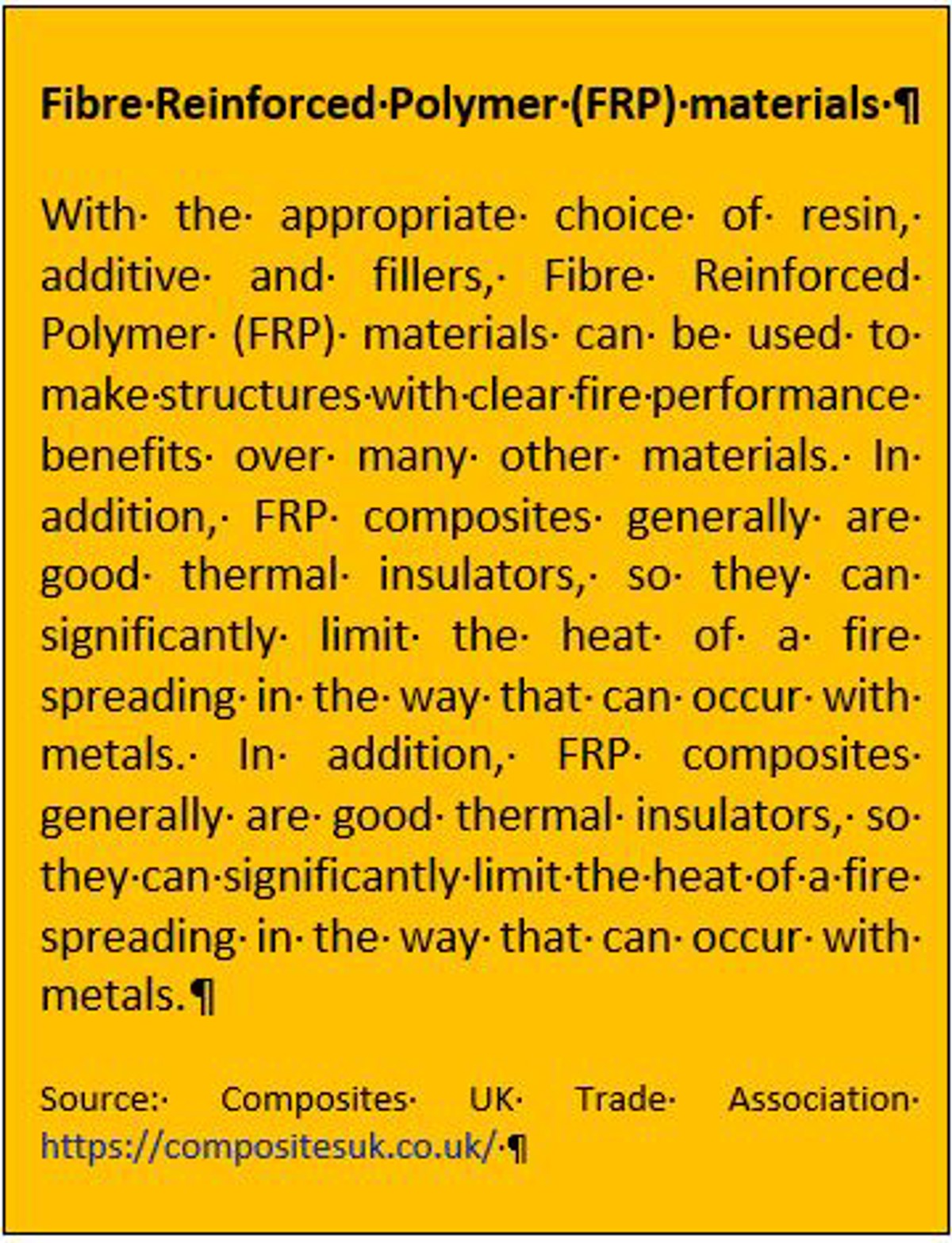Fires on materials made of fibre-reinforced plastic (FRP)
- Safety Flash
- Published on 15 December 2017
- Generated on 2 July 2025
- IMCA SF 31/17
- 2 minute read
Jump to:
A member reports that serious fires have broken out on vessels with fibre-reinforced plastic (FRP) materials.
What happened?
The fires appear to have been caused by overheating of the FRP from hot exhaust systems.
FRP is combustible and introduces several challenges compared to traditional non-combustible materials. It is imperative that safety barriers and fire safety measures are in place.

Incident 1
A fire was thought to have originated in FRP panels above the exhaust in an area between the main engine room and the adjacent casing. Maintenance of the engines had previously been carried out, requiring removal of insulation. The fire was contained, but with extensive material damage.
Incident 2
A fire had likely started in a compartment with direct access to open air and adjacent to an auxiliary engine room. The engine exhaust was routed through the compartment housing the silencer or muffler. A low-pressure cooling water alarm was experienced followed by a high temperature cooling water alarm, but without activation of the automatic engine shutdown. The vessel had to be evacuated and was declared a total loss
In both cases, there were no reported injuries to any persons.
What went wrong? What were the causes?
The immediate causes of the fires were likely to be due to:
- A combination of missing insulation on FRP structural surfaces exposed to heat radiation or direct contact with hot exhaust parts and limited engine room ventilation.
- Overheating of exhausts could also develop suddenly due to insufficient cooling water.
- Issues with temperature sensors or the malfunction of the shutdown system.
The ignition point of FRP materials is typically around 275° to 375°C, which is relatively low compared to metallic materials, i.e. aluminium alloys or steel.
The typical operating temperatures of engines and exhausts can be considerably higher and there is an inherent risk of fire if safety measures are not satisfactorily arranged or managed.
Recommendations
- Thorough and regular maintenance of machinery and associated parts, with regular check of known or potential hot spots and any signs of overheating.
- When removal of insulation is necessary during modifications or other work, the insulation should be correctly reinstalled and restored to at least the original condition.
- Adequate training of vessel crew for emergency preparedness.
Related safety flashes
-
IMCA SF 10/14
30 June 2014
-
IMCA SF 11/05
30 November 2005
-
IMCA SF 10/14
30 June 2014
IMCA Safety Flashes summarise key safety matters and incidents, allowing lessons to be more easily learnt for the benefit of the entire offshore industry.
The effectiveness of the IMCA Safety Flash system depends on the industry sharing information and so avoiding repeat incidents. Incidents are classified according to IOGP's Life Saving Rules.
All information is anonymised or sanitised, as appropriate, and warnings for graphic content included where possible.
IMCA makes every effort to ensure both the accuracy and reliability of the information shared, but is not be liable for any guidance and/or recommendation and/or statement herein contained.
The information contained in this document does not fulfil or replace any individual's or Member's legal, regulatory or other duties or obligations in respect of their operations. Individuals and Members remain solely responsible for the safe, lawful and proper conduct of their operations.
Share your safety incidents with IMCA online. Sign-up to receive Safety Flashes straight to your email.